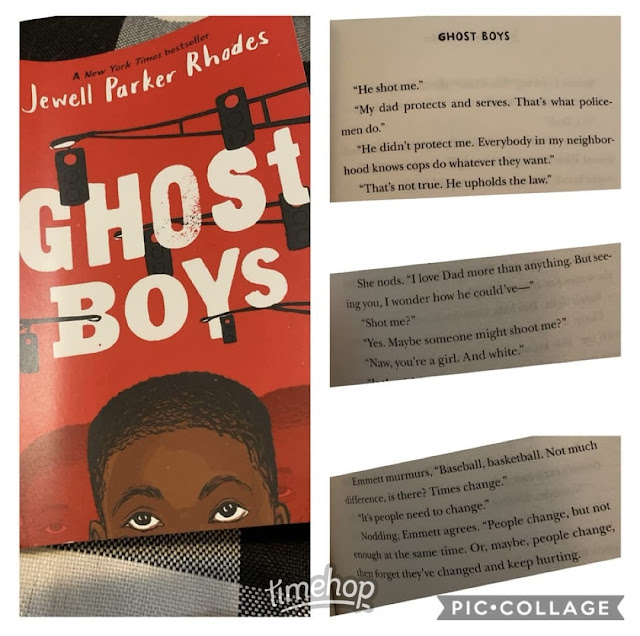Week 5: YA African American Literature
I'm not sure where to begin with this book... Maybe I should start by saying that African American literature that highlights injustices has always been a favorite of mine because, most of the time, it forces the reader to look at the situation from multiple perspectives. You may go into reading the book with one point of view, but have conflicting feelings by the end of the book. I believe that this is the type of literature we should be exposing America’s youth to because it gives them the opportunity to become empathetic to someone else’s circumstances. It also shows them that there are always two sides to everything and that we shouldn’t be too quick to judge. However, I will note that this isn’t a book I would read in my classroom. If it is shared in the classroom, then it should be with older students, perhaps seventh and up, and there should be explicit written permission from the parents and school administration due to the content. As Kate Messner, the author of The Seventh Wish, says, “Haunting, heartbreaking, and timely, this is a book that will start important conversations.” I’m not in favor of sharing these books to start a debate, to push the boundaries, or even to convince students that one point of view is “right” and the other is “wrong”. It is my belief that literature such as this is a great way for students to learn to think critically for themselves and to determine their personal beliefs outside of the influence of others.
“Rhodes has achieved something remarkable here: a kid’s-eye-view of violence and racism that balances innocence and outrage, wrenching loss and hard-won hope.” – Chicago Tribune
“An excellent novel that delves into the timely topic of racism… with the question of whether or not we really have come far when dealing with…race relations.” – School Library Connection, starred review
“The voice of Ghost Boys is nothing less than prophetic: It rings in its plot lines, in its characters, in its tones, in its images. And here is what that voice says: Bear witness.” – Gary D. Schmidt, award-winning author of The Wednesday Wars







Comments
Post a Comment